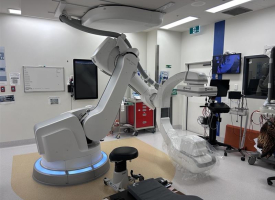National Disability Insurance Scheme - 2018
Preamble
The National Disability Insurance Scheme (NDIS) is one of the most significant reforms in Australia since the introduction of Medicare. The NDIS provides funding packages for people aged under 65[1] with permanent impairment that substantially reduces their physical, intellectual, cognitive, neurological, sensory, psychological, and social functioning.
The National Disability Insurance Agency (NDIA) is an independent statutory agency whose role is to implement the NDIS, whose function is to assign funding to individuals. Service providers/agencies compete in a market environment to attract NDIS customers.
There are an estimated 4.3 million Australians (aged 16 to 65) with a disability, but the majority of people with disability will not meet the eligibility criteria for NDIS funded packages. Approximately 460,000 people will participate in the NDIS across Australia by 2020.
Using an eligibility checklist, people with disability can assess if they meet the NDIS criteria, and, if so, apply to receive funded supports. NDIS funding is available for “reasonable and necessary supports” for people with disability to live a life as “ordinary” as possible. The funding covers:
- aids and equipment such as wheelchairs and hearing aids;
- helping people with personal care (e.g. showering);
- managing finances;
- house cleaning and domestic activities;
- psychological, social, and speech therapy, and physiotherapy;
- social participation activities such as in clubs; and
- transport to connect with friends and community[2].
People with disability not eligible for the NDIS will continue to rely on services provided by State and Territory governments.
The AMA acknowledges that at this stage the NDIS is not yet completely operating as intended, with funding concerns and problems with eligibility and assessments being an issue. However, as with other major reforms, the AMA recognises the need to balance reasonable criticisms of the NDIS without undermining either confidence in, or integrity of, the NDIS.
AMA Position
General Principles
- Governments must commit to fund the NDIS to ensure its viability, and that all eligible recipients are provided appropriate and adequate funding packages.
- Recommendations made by the Productivity Commission Inquiries and the Joint Standing Committee on the National Disability Insurance Scheme should be implemented in a timely manner.
- NDIS planners and assessors must be appropriately trained and qualified, and possess a sufficient level of disability knowledge to effectively carry out their roles and responsibilities.
- NDIS planners and assessors must have an understanding of the NDIS legislation and its objectives, and work respectfully with participants, carers, and medical professionals during key decision-making.
- Medical practitioners must be provided with accurate, unambiguous material detailing exactly what medical information (including diagnosis, treatments) is required for NDIS assessments.
- Disregarding medical professionals’ diagnoses and reports by NDIS planners who are not medically trained is unacceptable. In no circumstances should a non-medically qualified NDIS planner or assessor disregard medical assessments by treating health professionals.
- NDIS participants, their families, carers, and advocates must be properly informed of their rights and options, or have an advocate present during the planning meeting.
- People in all custodial settings should be eligible to access the NDIS.
- NDIS assessments should be completed in a manner that is clear and transparent to the client, whether over the phone or face to face, and meets the individual client’s needs and capabilities, taking into account those with a culturally and linguistically diverse background, and those with an intellectual disability or development delay. This could include interpreters and other assistance tools/providers as necessary.
Mental Health
- The right balance of funding and resources must be achieved between traditional medical mental health treatment and psychosocial supports for both those eligible for NDIS, and those not eligible.
- Appropriate NDIS packages should be available for all eligible Australians with permanent psychiatric impairment resulting in substantially reduced capacity.
- Clear, accurate information on what constitutes a ‘permanent psychiatric condition’ and 'substantially reduced functional capacity' is essential.
- The circumstances affecting permanent psychiatric impairment, such as acquired brain injury (including drug and alcohol related brain injury and traumatic brain injury), and fetal alcohol spectrum disorders, should not be grounds for ineligibility to the NDIS.
- Investment in community mental health services, which provide GPs with enhanced referral pathways and service options (especially for those with low to moderate mental health problems or who need support in managing their day-to-day activities), is required as part of the overall mental health care system.
- Regardless of NDIS eligibility, increased funding for the non-clinical provision of disability services keeps many people out of emergency departments, public hospitals, and more costly care and treatment.
- As Federally-funded mental health programs such as Partners in Recovery (PiR), Day to Day Living (D2DL), and Personal Helpers and Mentors (PhaMs) are being rolled into the NDIS, it is reasonable to expect that, at a minimum, both clinical and psychosocial care is provided, as needed.
Planning and Assessments
- The guidelines and information regarding medical assessments and the NDIS can be complex and confusing. Although a diagnosis is not a requirement to access the NDIS, evidence on the disability and functional impact on a person’s life is required by a treating doctor or specialist as part of the Professional’s Report. GPs, psychiatrists, and other medical practitioners who devote considerable time to fulfill the requirements of the NDIA and NDIS should be reimbursed.
- A functional assessment tool and reference package provided by the NDIS is needed to enable consistent assessments to be carried out.
- The NDIS must be consistent in assessment planning and decisions, and avoid any unnecessary delays in planning reviews. All decisions must be transparent, and participants should be able to see their draft NDIS ‘plans’ before they are finalised.
- NDIS planning and assessment does not need to take into account the factors contributing to psychosis and psychiatric impairment. The condition is what makes a person eligible for an NDIS package, regardless of how it is caused.
- A dedicated communication channel is required for GPs, psychiatrists, and other medical practitioners to speak with NDIA assessors.
Funding
- All governments must respond to the needs of people with mental illness deemed ineligible for NDIS packages. The gaps created where NDIS support packages are not available to people with mental health conditions are significant and demand urgent resources, funding, and coordinated programs.
- The Commonwealth has transferred all funding for mental health programs to the NDIS, meaning people ineligible for the NDIS will no longer have access to these programs. This will likely see greater pressure on GPs, psychiatrists, and State/Territory public hospitals from those who fall ‘between the new cracks’, and are left with few alternative options for medical and psychological care.
Aboriginal and Torres Strait Islander people
- Aboriginal and Torres Strait Islander people are significantly more likely to report a disability or long-term health condition than the non-Indigenous population. Disability in Indigenous communities is further compounded by a decreased propensity to seek a formal diagnosis or access to established disability support services.
- There is no word for ‘disability’ in Aboriginal and Torres Strait languages, and it is not a widely recognised concept in Aboriginal culture. Navigating the NDIS is proving to be a challenge for many Australians, but even more so for Aboriginal and Torres Strait Islander people living in rural and remote communities, many without access to the internet or support services.
- Housing is arguably the number one issue in terms of the social determinants of health for Aboriginal and Torres Strait Islander people. In the AMA’s annual Report Card on Indigenous Health, housing shortages, overcrowding, and lack of access to basic services such as potable water, electricity, and sanitation all contribute to poorer health outcomes. These social determinants must be considered as part of NDIS assessments and supports.
- The AMA calls for culturally-appropriate and accurate assessment tools that collect sufficient reliable information to assess support needs. The current criteria for assessment – that is to be conducted “in the least costly manner” – may lead to the most vulnerable and hard to reach people not being properly assessed by the NDIA. The NDIS ‘Hard To Reach’ strategy must be properly funded and implemented.
- It is of paramount importance that the NDIS address Indigenous housing as a priority. This must be done in close consultation with NDIS recipients and their communities as the ‘one size fits all’ approach has been a well-documented failure in many aspects of Indigenous health and service provision over many decades.
Rural and Remote
- The NDIS Rural and Remote Strategy[3] must be supported to ensure the successful delivery of the NDIS in rural and remote communities and Aboriginal and Torres Strait Islander communities across Australia.
- Access to disability services for people in rural, regional, and remote areas, and for those with mobility problems is underfunded and under-resourced. This must be a priority area for governments.
- Alternative transport measures should be provided above and beyond the assessed NDIS package as the NDIS funding does not cover the full cost of accessing transport. As transport costs can be prohibitive, it acts as both a barrier and disincentive to participation and interaction with the wider community.
- Gaps in mainstream mental health professional services and psychosocial supports in rural, regional, and remote Australia must be addressed through prioritising workforce strategies.
References
[1] At time of application.
[2] In March 2017, the Federal Court ruled that laws governing the NDIS do not allow the agency to only partially fund reasonable and necessary supports. This means that people with disability living in rural areas who are unable to drive or access public transport, would be funded for the full cost of their transport needs. The NDIA claimed this decision potentially affects up to 34,000 NDIS participants and the cost of transport alone and could have significant implications for the viability of the NDIS.
[3] https://www.ndis.gov.au/Rural-and-Remote-Strategy



